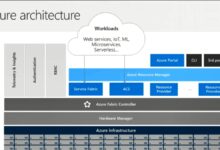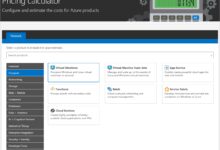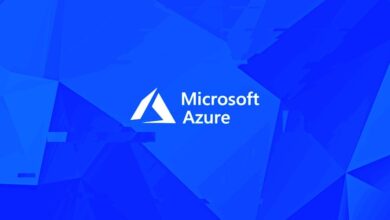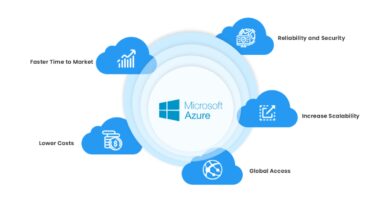Azure Certified: 7 Powerful Reasons to Boost Your Career Now
Kickstarting your journey as an Azure certified professional isn’t just a resume booster—it’s a career revolution. In today’s cloud-driven world, Microsoft Azure stands tall, and being Azure certified opens doors to high-paying jobs, global recognition, and unmatched technical credibility.
What Does It Mean to Be Azure Certified?

Earning the title of ‘Azure certified’ means you’ve passed one or more Microsoft certification exams validating your expertise in Azure cloud technologies. These certifications are industry-recognized credentials that prove your ability to design, implement, and manage cloud solutions using Microsoft Azure.
Understanding Microsoft’s Certification Ecosystem
Microsoft has restructured its certification paths to align with real-world job roles. Instead of generic exams, Azure certifications now map directly to specific roles like Administrator, Developer, Architect, and Data Engineer. This role-based approach ensures that when you become Azure certified, you’re not just passing a test—you’re proving you can do the job.
- Azure Administrator (AZ-104)
- Azure Developer (AZ-204)
- Azure Solutions Architect (AZ-305)
- Azure Data Scientist (DP-100)
- Azure Security Engineer (AZ-500)
Each certification targets a specific skill set, making it easier for employers to assess your qualifications. For example, the AZ-104 exam focuses on managing Azure identities, storage, compute, and networking—core skills for any cloud admin.
The Value of Official Microsoft Recognition
Being Azure certified isn’t just about personal achievement—it’s about credibility. Microsoft is one of the top three cloud providers globally, and their certifications are backed by enterprise trust. When you display the Azure certified badge on LinkedIn or your resume, hiring managers know you’ve met rigorous standards.
“Microsoft certifications are among the most respected in the IT industry, especially as Azure continues to grow its market share.” — TechRepublic
This recognition translates into real-world benefits: faster hiring, higher starting salaries, and better project opportunities.
Why Pursue Azure Certification in 2024?
The cloud computing landscape is evolving rapidly, and Azure is at the forefront. With over 200 services and data centers in 60+ regions, Azure powers some of the world’s largest enterprises. Becoming Azure certified positions you at the center of this technological wave.
High Demand for Azure Skills in the Job Market
According to LinkedIn job data, Azure-related roles are among the fastest-growing in tech. Positions like Cloud Administrator, DevOps Engineer, and Cloud Architect frequently list Azure certification as a preferred or required qualification.
- Over 70% of Fortune 500 companies use Microsoft Azure
- Azure job postings increased by 45% year-over-year (2023–2024)
- Certified professionals receive 20–30% more interview callbacks
Employers trust Azure certified individuals to hit the ground running, reducing onboarding time and training costs.
Competitive Salary Advantages
One of the most compelling reasons to become Azure certified is the financial upside. Certified professionals consistently earn higher salaries than their non-certified peers.
- Average salary for Azure Administrators: $95,000/year
- Azure Solutions Architects: $130,000–$160,000/year
- Senior Azure Developers: $110,000–$140,000/year
These figures, based on Indeed salary reports, show a clear correlation between certification and earning potential. In many cases, the cost of certification is recouped within weeks of landing a new role.
Types of Azure Certifications Available
Microsoft offers a tiered, role-based certification path. Whether you’re just starting or aiming for expert-level mastery, there’s an Azure certified track for you.
Foundational Level: Microsoft Certified: Azure Fundamentals (AZ-900)
The AZ-900 exam is the perfect starting point for beginners. It covers cloud concepts, core Azure services, security, privacy, compliance, and pricing. While not as technical as other exams, it’s a crucial first step toward becoming Azure certified.
- Target audience: IT newcomers, sales, and non-technical roles
- No prerequisites required
- Great for building cloud literacy
Passing AZ-900 earns you the Microsoft Certified: Azure Fundamentals credential, a solid foundation for further specialization.
Associate Level: Specialized Role-Based Certifications
After mastering the fundamentals, most professionals pursue associate-level certifications. These are where the real Azure certified value begins to shine.
- AZ-104: Microsoft Azure Administrator – Manage Azure resources, identities, and governance
- AZ-204: Developing Solutions for Azure – Build and deploy cloud applications
- AZ-305: Designing Microsoft Azure Infrastructure Solutions – For aspiring architects
- AZ-400: Azure DevOps Engineer – CI/CD, automation, and release management
- AZ-500: Microsoft Azure Security Technologies – Secure cloud environments
Each of these certifications requires hands-on experience and deep technical knowledge. Microsoft recommends 6–12 months of practical Azure experience before attempting these exams.
Expert Level: Mastering the Cloud
At the top of the pyramid are expert-level certifications. These are designed for seasoned professionals who design and implement complex cloud solutions.
- Microsoft Certified: Azure Solutions Architect Expert – Requires passing AZ-305 and holding AZ-104
- Microsoft Certified: DevOps Engineer Expert – Requires AZ-400 and either AZ-104 or AZ-204
These credentials are highly respected and often required for senior cloud roles. Being Azure certified at the expert level signals leadership, deep technical mastery, and strategic thinking.
How to Prepare for Azure Certification Exams
Success in Azure certification exams doesn’t come from memorization—it comes from preparation, practice, and persistence. Here’s how to get ready the right way.
Leverage Microsoft Learn for Free Training
Microsoft provides a powerful, free learning platform called Microsoft Learn. It offers structured learning paths for every Azure certification, complete with interactive modules, quizzes, and hands-on labs.
- Each module includes video tutorials and text-based lessons
- Hands-on labs use real Azure environments (free sandbox)
- Learning paths are updated regularly to reflect exam changes
For example, the AZ-104 Administrator learning path includes 18 modules covering identity management, virtual networks, and monitoring.
Use Practice Exams and Test Simulators
Practice exams are essential for building exam-day confidence. Platforms like Whizlabs, MeasureUp, and ExamTopics offer realistic simulations of the actual test environment.
- Simulate timed conditions and question formats
- Identify knowledge gaps before the real exam
- Review detailed explanations for correct and incorrect answers
Many candidates report that taking 3–5 full-length practice tests significantly improves their pass rate.
Gain Hands-On Experience with Azure Labs
No amount of theory can replace real-world practice. Microsoft offers free Azure credits ($100–$200) for new users, and many training platforms include sandbox environments.
- Create virtual machines, configure networks, and deploy apps
- Experiment with Azure Active Directory and role-based access control
- Test backup, disaster recovery, and monitoring tools
Hands-on labs help you internalize concepts and build muscle memory for common tasks.
Benefits of Being Azure Certified for Your Career
Beyond the paycheck, being Azure certified offers long-term career advantages that compound over time.
Global Recognition and Portability
Azure certifications are recognized worldwide. Whether you’re in New York, London, or Singapore, your Azure certified status carries weight. This portability makes it easier to work remotely, relocate, or join multinational companies.
- Certifications are valid for two years (renewable via free online assessments)
- Microsoft’s certification dashboard allows employers to verify credentials
- Badges can be shared on LinkedIn, email signatures, and resumes
This global trust makes Azure certified professionals highly desirable in the international job market.
Accelerated Career Growth and Promotions
Many IT professionals report that earning their Azure certification led directly to promotions or role changes. Managers view certification as proof of initiative, expertise, and commitment.
- 68% of certified professionals received a promotion within a year (Global Knowledge Report)
- 52% reported increased responsibility in cloud projects
- Many transitioned from on-premises roles to cloud-first positions
Being Azure certified doesn’t just open doors—it helps you climb the ladder faster.
Access to Exclusive Microsoft Resources and Communities
Once certified, you gain access to a network of resources, including the Microsoft Certified Trainer (MCT) program, Tech Community forums, and early access to Azure updates.
- Join the Microsoft Learn Student Ambassadors program
- Participate in beta exams and influence future certification content
- Attend Microsoft Ignite and other exclusive events
These communities foster continuous learning and professional networking, helping you stay ahead in a fast-moving industry.
Common Challenges and How to Overcome Them
While the rewards are great, the path to becoming Azure certified isn’t without hurdles. Here’s how to tackle the most common challenges.
Information Overload and Scope Creep
Azure is vast, with hundreds of services. Many candidates feel overwhelmed by the sheer volume of content. The key is to focus on the exam objectives (skills measured) and stick to the official learning path.
- Download the exam outline from Microsoft’s certification page
- Use a study planner to break topics into weekly goals
- Avoid diving too deep into niche services not covered in the exam
Staying focused prevents burnout and ensures efficient preparation.
Cost of Exams and Training Materials
Certification exams cost $165 each (as of 2024). While not exorbitant, the cost can add up, especially if you need to retake an exam. However, there are ways to reduce expenses.
- Use free Microsoft Learn resources instead of paid courses
- Take advantage of free exam vouchers through programs like Microsoft Learn Student Ambassadors
- Check if your employer offers certification reimbursement
Many companies invest in employee certifications, viewing them as a return on investment.
Time Management for Working Professionals
Balancing work, life, and study is tough. Most successful candidates dedicate 8–12 weeks to preparation, studying 10–15 hours per week.
- Create a study schedule and treat it like a work meeting
- Use weekends for hands-on labs and practice exams
- Join study groups for accountability and peer support
Consistency beats intensity—studying a little every day is more effective than cramming.
Renewal and Staying Current as an Azure Certified Pro
Microsoft requires certification renewal every two years. This ensures that Azure certified professionals stay up to date with the latest technologies and best practices.
How the Renewal Process Works
Renewal is done through free online assessments on Microsoft Learn. These are shorter than full exams and focus on new features and updates.
- Available 60–90 days before expiration
- Takes 30–60 minutes to complete
- No cost involved
For example, if you’re Azure Solutions Architect Expert, you’ll get a renewal assessment covering new Azure architecture patterns, security updates, and cost optimization tools.
Importance of Continuous Learning
The cloud evolves fast. New services like Azure AI, Azure Kubernetes Service (AKS), and serverless computing are introduced regularly. Staying Azure certified means committing to lifelong learning.
- Subscribe to the Azure Blog and Microsoft Tech Community
- Attend webinars and virtual training events
- Experiment with new services in your sandbox
Continuous learning keeps your skills sharp and your resume competitive.
Upskilling to Expert and Specialty Certifications
Once you’re Azure certified at the associate level, consider advancing to expert or specialty certifications. These include:
- Microsoft Certified: Azure AI Engineer Associate
- Microsoft Certified: Azure Data Engineer Associate
- Microsoft Certified: Azure for SAP Workloads Specialty
- Microsoft Certified: Azure Network Engineer Associate
These niche certifications allow you to specialize and stand out in competitive fields like AI, data, and enterprise integration.
Real-World Success Stories of Azure Certified Professionals
The true value of Azure certification is best illustrated through real-life transformations.
From Help Desk to Cloud Architect: John’s Journey
John, a former IT help desk technician, earned his AZ-900 and AZ-104 certifications while working full-time. Within 18 months, he transitioned to a cloud administrator role and now works as a Solutions Architect at a Fortune 500 company.
“Being Azure certified changed my career trajectory. I went from resetting passwords to designing global cloud infrastructures.” — John D., Azure Solutions Architect
Freelancer Gains Global Clients
Sophia, a freelance developer, added Azure certification to her portfolio. Within six months, she landed contracts with clients in Europe and Australia, charging premium rates for her cloud expertise.
- Increased hourly rate from $50 to $120
- Won bids on Upwork and Toptal due to verified credentials
- Now mentors others on becoming Azure certified
Team-Wide Certification Boosts Company Performance
A mid-sized IT firm required all engineers to become Azure certified. Within a year, project delivery times improved by 40%, and client satisfaction scores rose significantly.
Management reported that certified teams made fewer configuration errors and leveraged Azure services more efficiently.
Is Azure certification worth it for beginners?
Absolutely. Starting with the AZ-900 (Azure Fundamentals) is ideal for beginners. It introduces core cloud concepts and sets the foundation for more advanced certifications. Many IT newcomers use it to transition into cloud roles.
How long does it take to become Azure certified?
It depends on your background. Beginners typically spend 4–6 weeks preparing for AZ-900. Associate-level exams (like AZ-104) require 8–12 weeks of study with hands-on practice. Expert certifications may take 3–6 months, especially if you need to earn prerequisite certs first.
Can I get Azure certified for free?
While exams cost $165, you can access free training via Microsoft Learn. Microsoft occasionally offers free exam vouchers through events like Ignite or student programs. Some employers also reimburse certification costs.
Do Azure certifications expire?
Yes, Azure certifications are valid for two years. You can renew them by completing a free online assessment on Microsoft Learn, ensuring you stay current with the latest Azure updates.
Which Azure certification pays the most?
Azure Solutions Architect Expert and DevOps Engineer Expert typically offer the highest salaries, often exceeding $150,000/year. Security and data engineering roles also command high compensation due to specialized demand.
Becoming Azure certified is more than just passing an exam—it’s a strategic career move with lasting benefits. From higher salaries and global recognition to accelerated promotions and access to cutting-edge technology, the advantages are clear. Whether you’re starting out or leveling up, the Azure certification path offers a structured, respected, and rewarding journey. With the right preparation and mindset, you can join the ranks of thousands of professionals who’ve transformed their careers by earning the Azure certified title. The cloud future is here—and it’s yours to master.
Further Reading:









